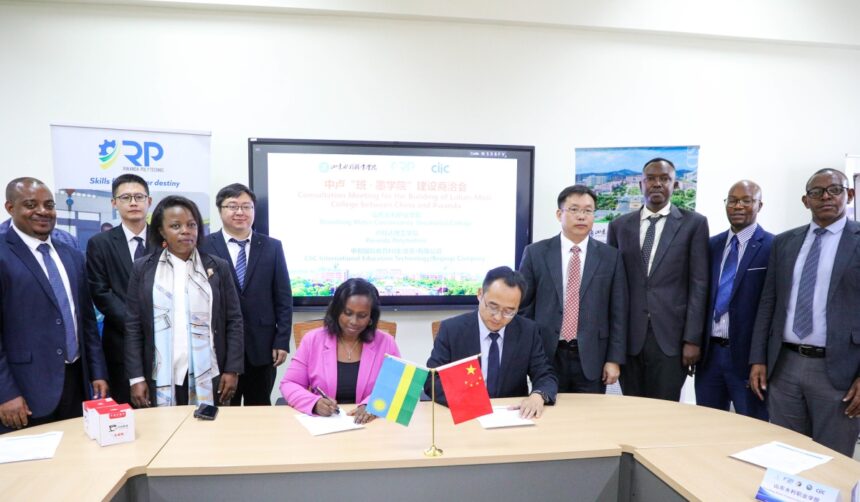The Chinese government has announced its commitment to significantly increasing support for Rwanda’s vocational education system with the aim of equipping Rwandan students with practical skills and knowledge that will empower them to contribute meaningfully to the country’s growing economy.
It comes after a partnership deal between Rwanda Polytechnic and two Chinese institutions: Shandong Water Conservancy Vocational College and Shandong Vocational College of Industry.
A delegation from the Chinese TVET sector arrived in Rwanda to hold talks with their Rwandan counterparts. Two letters of intent were signed between Rwanda Polytechnic and two Chinese institutions
This development comes as part of China’s ongoing efforts to foster collaboration and strengthen relations with African nations, particularly in the area of education and skills development.
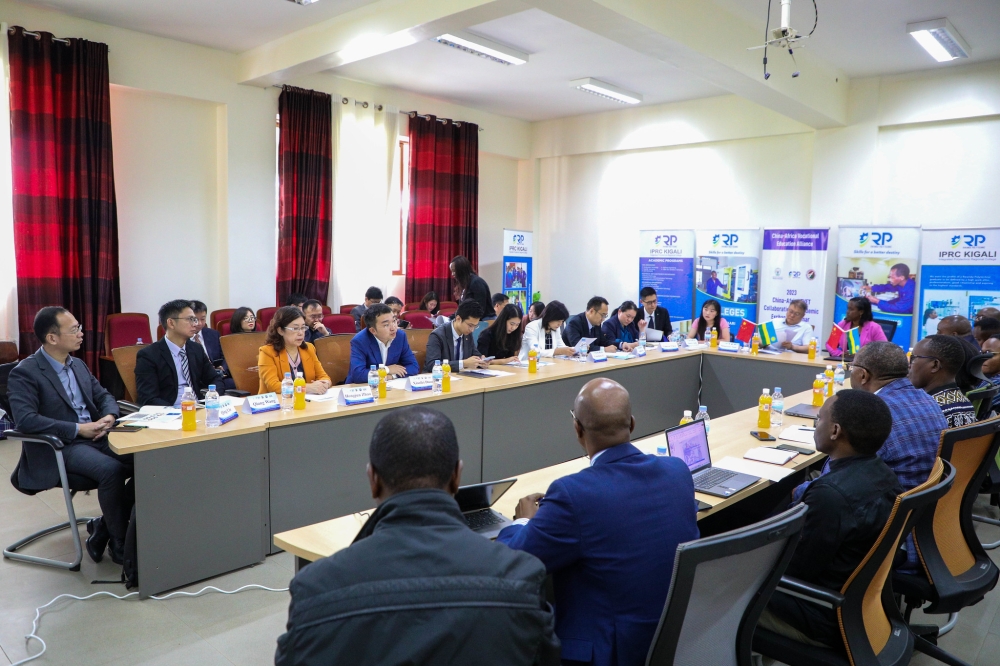
The two letters of intent aim at establishing cooperation between the institutions in irrigation, agriculture, manufacturing and ICT.
The two letters of intent aim at establishing cooperation between the institutions in irrigation, agriculture, manufacturing and ICT and they will benefit IPRCs including IPRC Kigali, IPRC Tumba, IPRC Gishari and IPRC Ngoma.
The cooperation is part of the China-Africa Vocational Education Alliance CAVEA), an initiative established by the government of China to allow institutions from Africa and China to have international collaborations on educational development.
ALSO READ: TVET schools showcase exceptional innovations
During a meeting that the Chinese delegation had with the Claudette Irere, the Minister of Education, Sun Shanxue, the vice chairman of the Chinese society of technical vocational education, said TVET is important for achieving the industrialisation of Africa. He noted that China is ready to collaborate with Africa on this.
He hinted at the fact that TVET collaborations between China and Africa were previously between institutions, but now China is trying to establish mechanisms at national level so that more stakeholders can benefit.
Irere appreciated the Chinese delegation for their visit to Rwanda and how they are interested in supporting the country’s TVET sector.
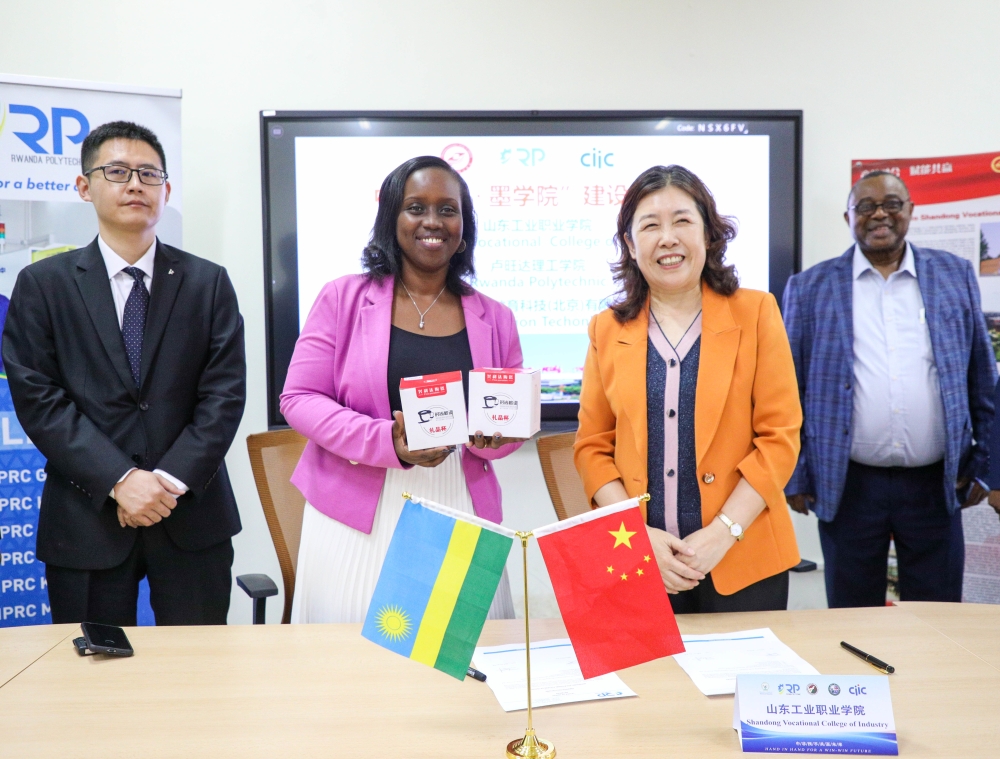
The cooperation is part of the China-Africa Vocational Education Alliance CAVEA), an initiative established by the government of China.
“One thing that I took note of and I want to see ourselves looking into is your approach on TVET digitalization. The fact that you can even measure digitalisation is something we want to learn,” she noted.
Ye Zhouxuan, the Economic and Commercial Counsellor at the Chinese embassy in Rwanda, said both countries attach great importance to education.
“We all believe that the quality of talents determines a nation’s development and progress. I remember His Excellency President Paul Kagame once said that ‘education is about dignity and is the key to Rwanda’s future’, and I couldn’t agree more. That’s why education has always been one of the priority areas for our bilateral cooperation,” he noted.
He noted that Rwanda and China have had good cooperation in TVET in the past, for example the China-aided extension project of IPRC Musanze in Northern Province, in addition to the fact that Zhejiang Jinhua Vocational and Technical College will set up a Luban workshop in IPRC Musanze.
“Rwanda is currently experiencing rapid economic growth, with several sectors such as infrastructure, energy, agriculture, manufacturing, and ICT, showing remarkable progress. As Rwanda undergoes a digital transformation, skilled workers will play an even more crucial role,” he said.
Sylvie Mucyo, the Vice Chancellor of Rwanda Polytechnic, thanked China for supporting one of Rwanda’s best colleges, IPRC Musanze, in terms of infrastructure, modern workshop and laboratory equipment.
She thanked CAVEA for their support and partnership that link Rwanda Polytechnic with the six colleges from China, “with the aim to enhance the quality of our programs so that we can meet our country and the East African Community (EAC) industrial needs.”
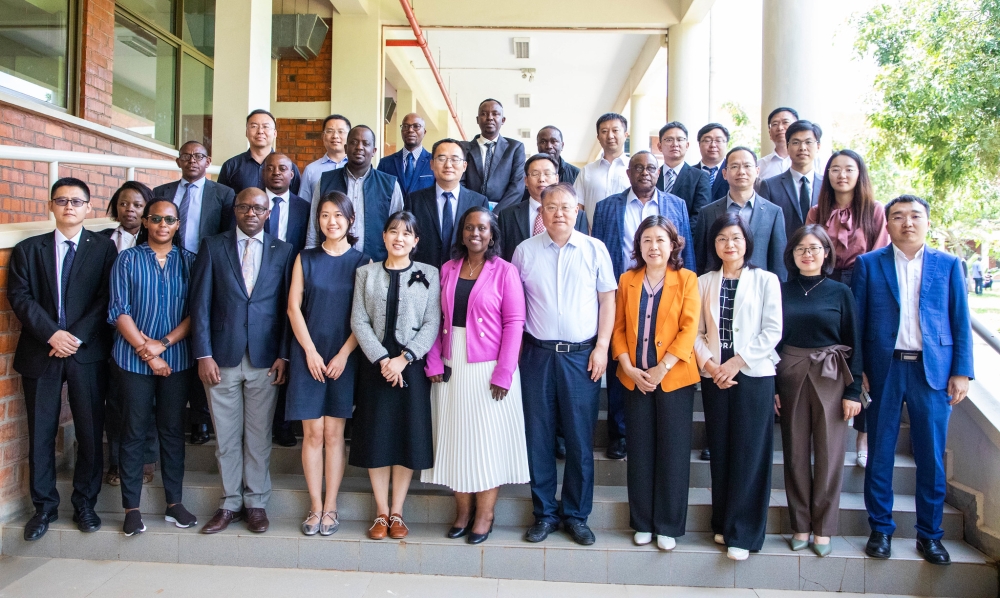
Delegates pose for a group photo after a meeting
“This will be achieved through collaboration areas that include but are not limited to curriculum development for the different qualification levels, review of some of our programmes, and exchange towards improvement of teaching and learning applicable to appropriate standards,” she said.
“The collaboration with CAVEA and Chinese higher learning vocational education institutions is not merely a one-time venture, we believe it is a start towards a long-term partnership that will encompass other educational programmes and activities to further and enhance the academic landscape in Rwanda and beyond,” she added.
China’s decision to ramp up support for Rwanda’s vocational education sector comes at a crucial time. As Rwanda continues to experience rapid economic growth and diversification, there is an increasing demand for skilled workers across various sectors. By focusing on vocational training, the government hopes to bridge the skills gap and create opportunities for sustainable employment.

Delegates from China exchange ideas with local representatives during their meeting
This partnership between China and Rwanda is founded on a shared vision of investing in human capital development. Chinese experts and educators will collaborate with their Rwandan counterparts to introduce modern teaching techniques, updated curricula, and state-of-the-art facilities. This exchange of knowledge and expertise will bring Rwanda’s vocational education system on par with global standards, enabling graduates to meet the demands of a rapidly evolving job market.

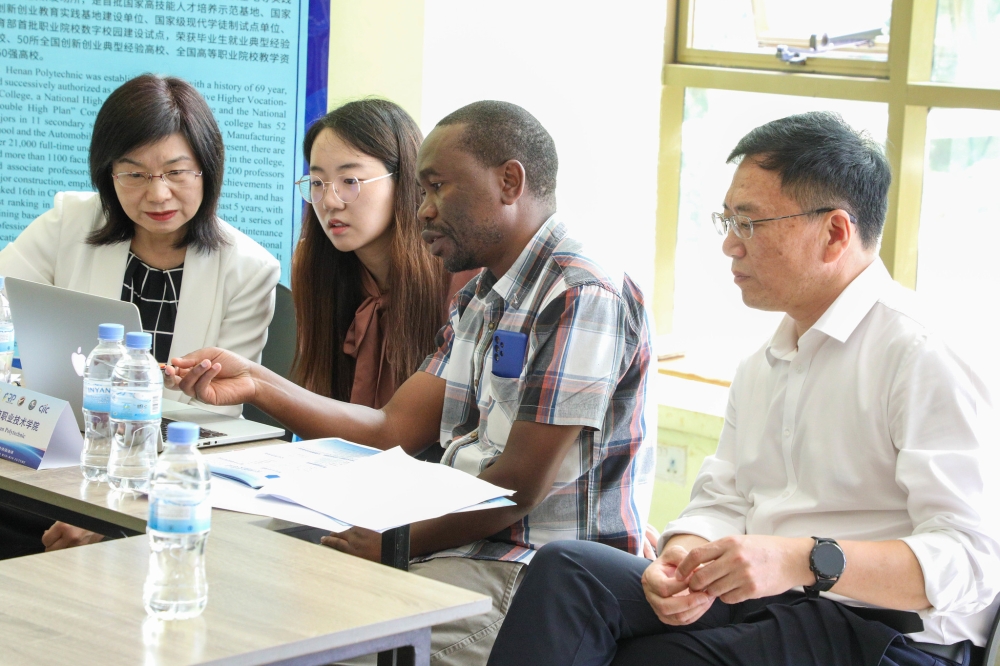

Chinese investment in Rwanda’s vocational education sector showcases the importance of lifelong learning and skill development in driving economic growth. It highlights the commitment of both nations to invest in their youth, providing them with the necessary tools to succeed in the global economy.









